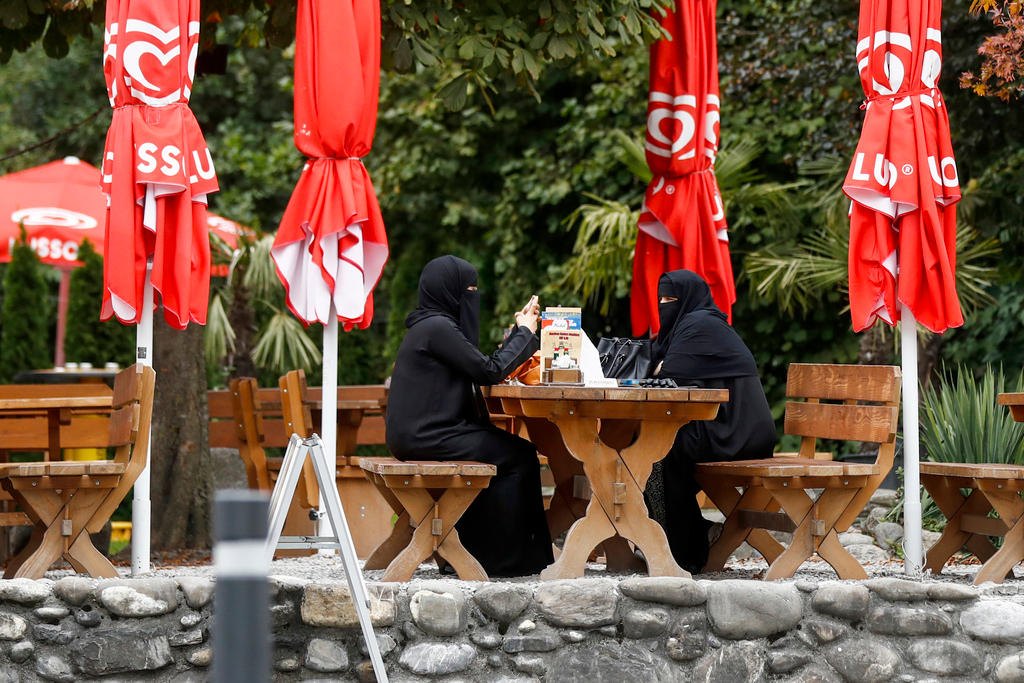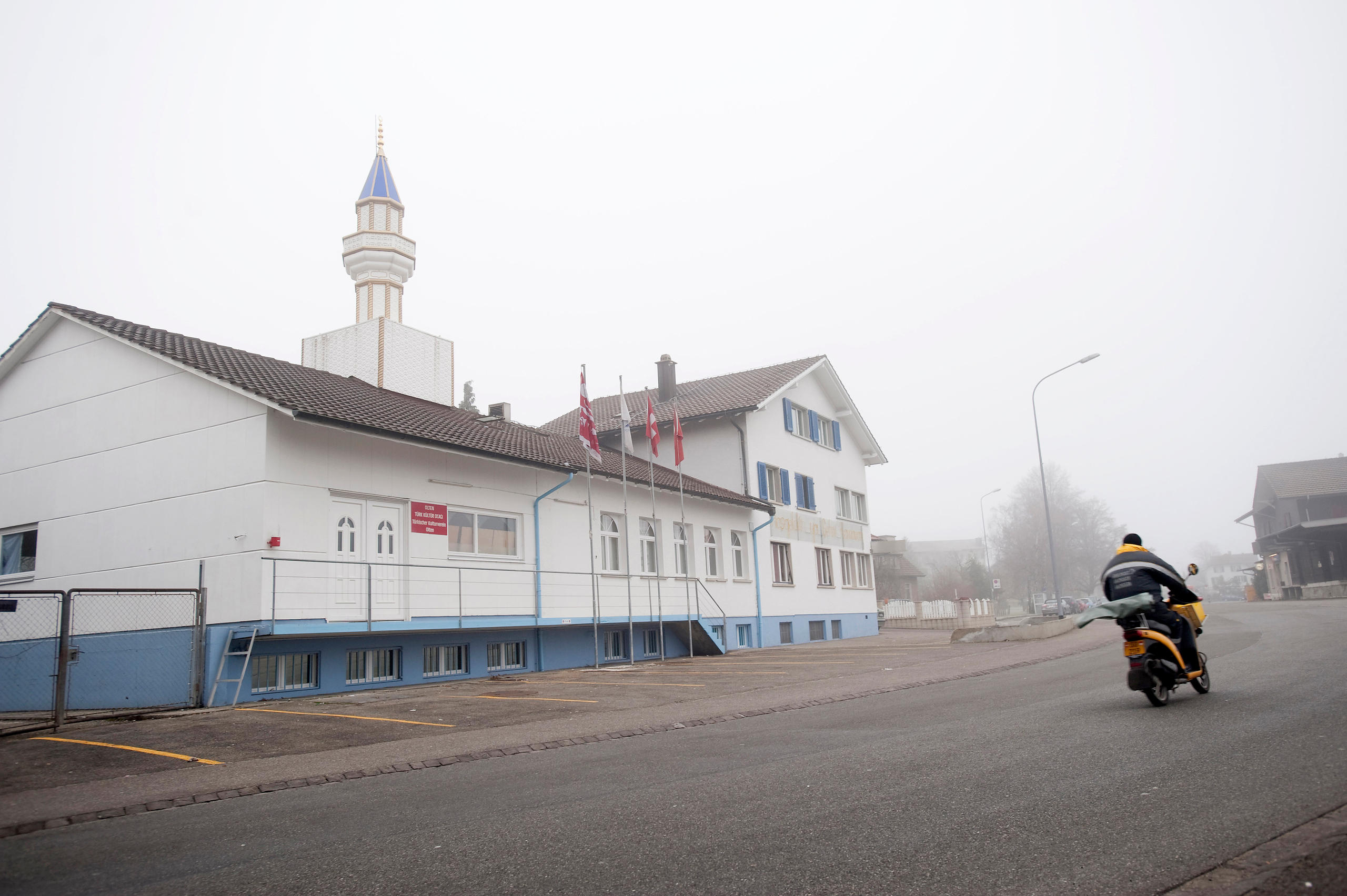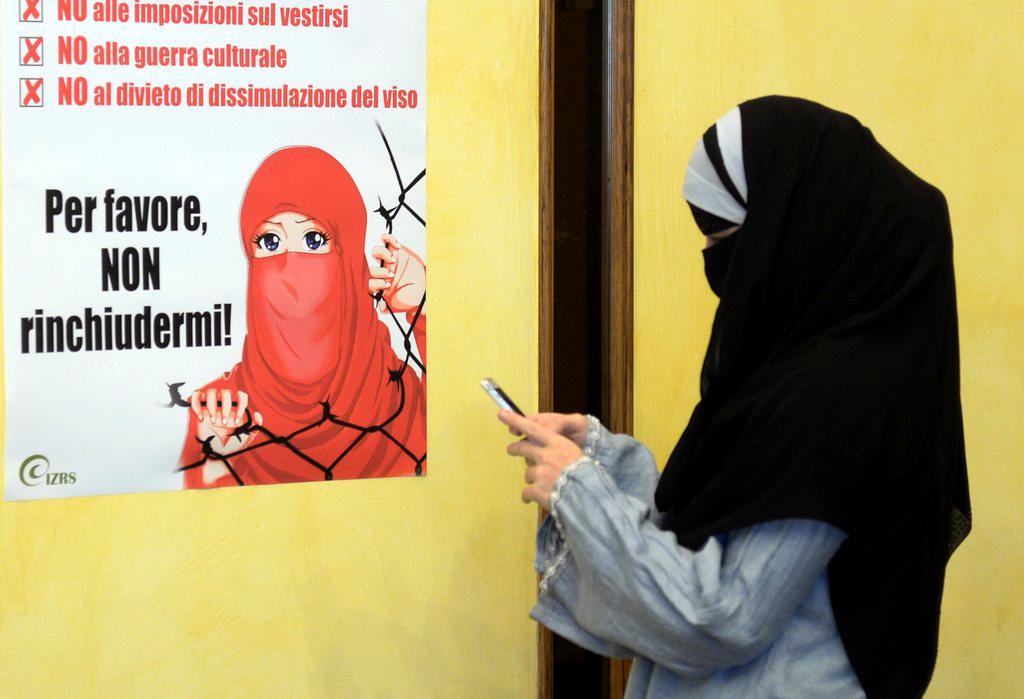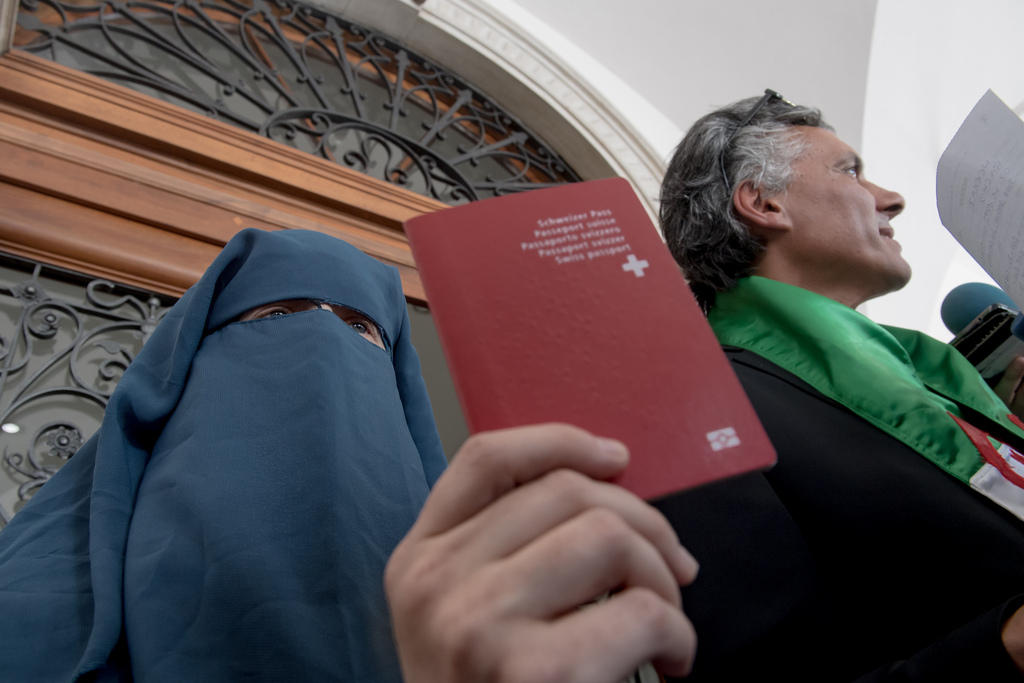Readers react to ‘outrageous’ burka ban article

swissinfo.ch readers have been holding a lively debate over whether direct democracy leads to a majority of society tyrannising religious minorities.
An article published by swissinfo.ch on Wednesday, which reflected the points of view of political scientist Adrian Vatter, has triggered an outpouring of comments on social media pages.
Most readers who reacted in English were critical of both his ideas and the article. “This article is outrageous. Why does swissinfo only promote this ridiculous point of view so destructive to the core ideals of Switzerland?” wondered a reader who signed on as Rafael.ti.
By contrast, an Arabic commentator, Imad al-Dakhil, praised the article as “good and constructive” and questioned whether direct democracy could lead to a “right decision”.
Vatter, a professor at the University of Bern, recently published a book called “Vom Schächt- zum Minarettverbot” (From bans on religious slaughter rituals to minarets). It argues that religious minorities suffer more than others under Swiss direct democracy because their voices are not heard during votes.

More
Is the Swiss burka ban a tyranny of the majority?
Some swissinfo.ch readers agreed that the Swiss system leads to a tyranny of the majority over the minority, while others preferred to let the popular will decide societal issues. The article appeared in ten languages, with Arabic, English and Italian readers being particularly vociferous.
Jaber Ibrahimi remarked on Facebook that democracy is strengthened “by respecting the rights of minorities and not suppressing them”, but asserted that “there are some matters such as freedom of religious practice for example, that should not be voted on”.
Mohammed Al-Alili agreed that voters should not hold sway over the “freedom to choose the way one dresses and the right to build houses of worship, and to live according to one’s personal beliefs”.
Most Italian-speaking readers who reacted agreed that minorities – in particular Muslims – must adapt to the majority. “Direct democracy means that whoever pays taxes has a say in decisions that affect their country,” said Perla Agostini.
However, some readers appreciated the problem and danger facing minorities. “It’s not a good thing if the majority oppress a minority because the right to preserve your own culture is a fundamental right,” said Gianni Moroni.
Extreme differences
Among Arabic readers, Saleh Batifi warned of the danger of blind adherence to democracy without consideration for the real values that it is based on. “We must not forget that it was democracy that brought Hitler and his Nazi party to power, and now [Turkish President] Erdogan is eliminating everyone in the same manner!”
For his part, Mohammed al-Sudairy asked: “What do you think would happen if we applied direct democracy in our countries like you are doing? All churches would be closed and wearing the veil ‘hijab’ would be imposed on everyone, because it is in our customs to wear decent clothes.”
Nora Sabah called for more cultural adaptation, saying that those who wish to build minarets, wear the niqab and eat halal meat should “return to the Islamic countries they came from” because, in her words, “living in Switzerland isn’t suitable for them”.
Much the same sentiment came from Houida Dunya, who argued that “every country has its own culture, customs and traditions, and that no one should come from another country and object to this situation or try to change it”.
“Why do the Arabs that come to Switzerland want to change the laws here, instead of returning to their own countries?” she asked.
Swiss traditions
English readers frequently contended that Islam runs counter to Swiss traditions, ideals and general way of life. “Switzerland is a nation with a cross on its flag. Such a stupid article,” chipped in Bro.
“It’s always the immigrants who should adjust to the Swiss rules AND NOT the other way around,” said Rafael.ti.
“If you don’t want to integrate, then go somewhere else,” said Expat.
A few voices wondered how exactly wearing a burka offended Swiss values.
“Muslim visitors here (at least in Ticino) aren’t allowed to wear their traditional dress by law,” said englishspeaker. “What are they doing that doesn’t respect Swiss law?”
Another reader, jsowers1, looked at the broader picture, arguing that politicians, while usually more liberal than voters on cultural issues, “invariably fall under the influence of the economic elite on economic, environmental, and foreign policy issues”.
“Representative government, if left to its own devices, will lead society down the path of war and destruction,” jsowers1 added. “Direct democracy, while not perfect, is necessary to protect human rights and ensure that law and social policy are built around the needs and interests of the people.”

In compliance with the JTI standards
More: SWI swissinfo.ch certified by the Journalism Trust Initiative











You can find an overview of ongoing debates with our journalists here . Please join us!
If you want to start a conversation about a topic raised in this article or want to report factual errors, email us at english@swissinfo.ch.